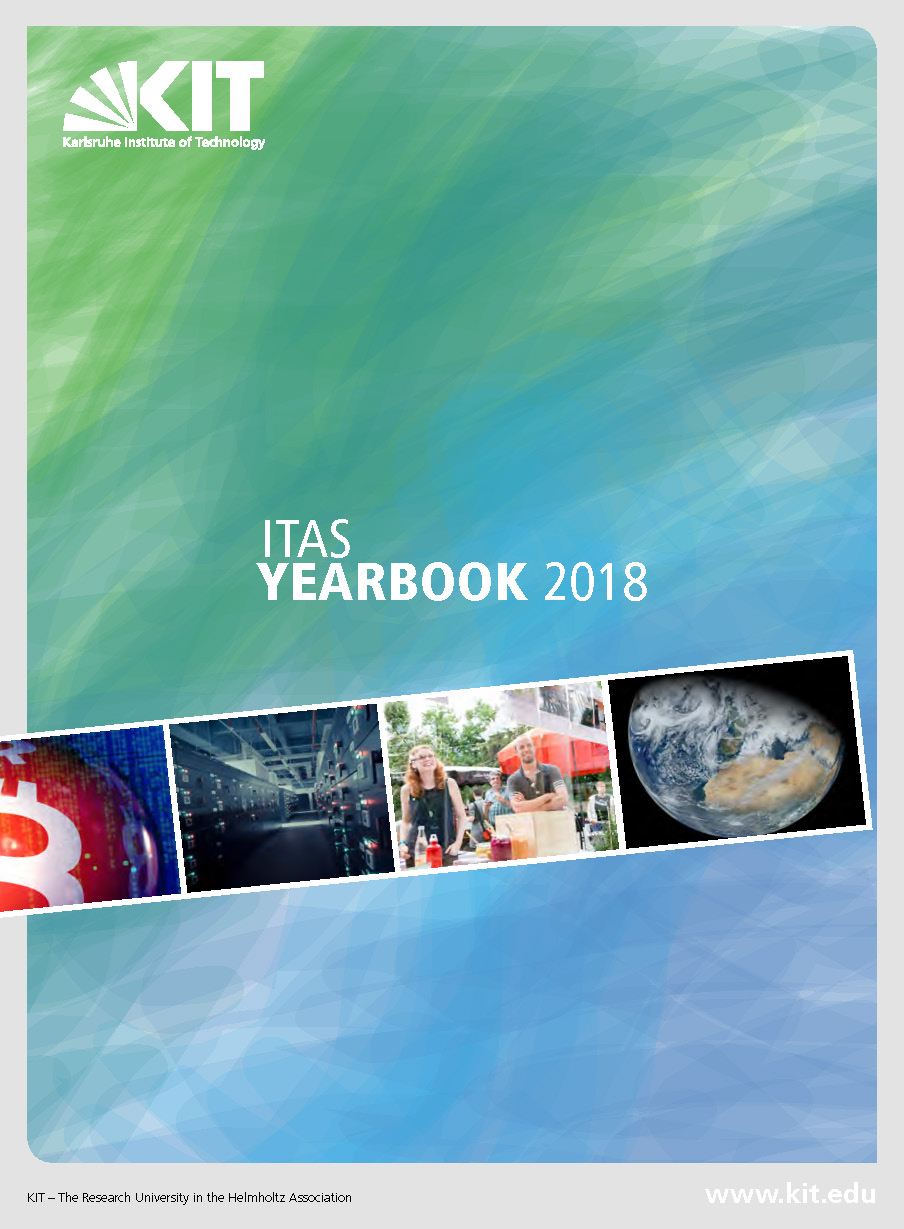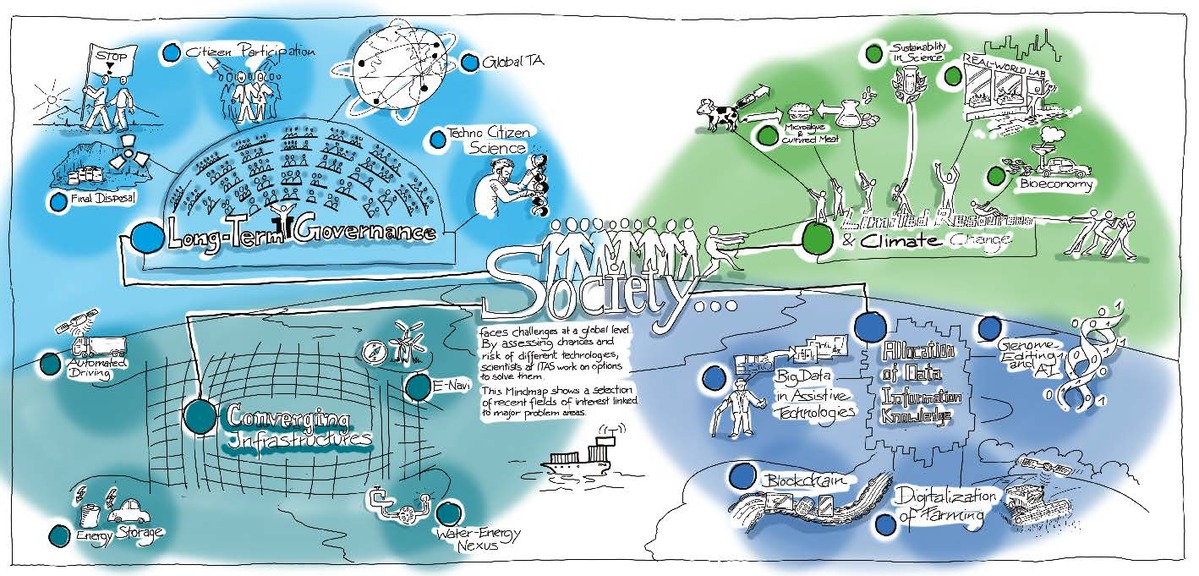ITAS Yearbook 2018 published
Thinking in problems is at the core of the work at the Institute for Technology Assessment and Systems Analysis (ITAS). The Yearbook 2018 reflects this premise and concentrates on recent challenges for modern society:
- the problem of limited resources combined with climate change, which raises questions of sustainable ways of life, i.e., sufficiency, substitution, efficiency, and of finding a balance between ecology, economics, and human needs;
- the ongoing process of digitalization and digital transformation, promising more efficiency and productivity as well as new business cases and applications, which poses problems of the allocation of data, information, and knowledge;
- the emergence of large systems, networks of systems, and networks of networks (webs), which push forward the convergence of vital infrastructures such as energy, transportation, mobility, the world wide web, industrial production, etc.;
- the long-term governance required to tackle these issues which itself is confronted with short cycles of annual balance sheets in economy and election periods in politics.
Those major societal issues require an international endeavor. Over the last years, ITAS has therefore participated in numerous European projects and expanded cooperation from the US to Russia, China, India, and Australia. Additionally the institute welcomes a variety of international scholars and (postgraduate) students every year.
This is reason enough to present ITAS for the first time with a purely English yearbook. The publication highlights selected topics and projects that are at the core of ITAS’ current research agenda, which is continuously challenged to develop new creative methods and approaches. (25.10.2018)
Further links:
- ITAS Yearbook 2018 as PDF Download
- List of Yearbooks of ITAS



